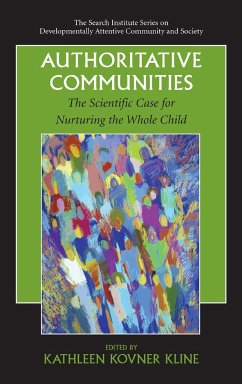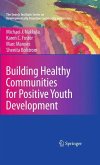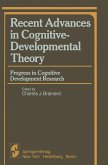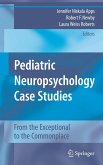Authoritative Communities: The Scientific Case for Nurturing the Whole Child introduces innovative solutions based firmly in the children's mental health and resilience literature and in the hypothesis that humans are "hardwired to connect." These "authoritative communities" consist of such individuals and institutions as parents, teachers, coaches, elders, and a variety of organizations that are committed to each other's well-being over the long-term and who instill children with prosocial values such as empathy and compassion. Living within these communities enables children and youth to develop a consistent sense of purpose and meaning, so that they, in turn, are able to grow up to be responsible, productive, and nurturing adults.
The comprehensive coverage in this volume bring new insights and evidence to the nature/nurture debate from developmental, attachment, neurobiological, spiritual, and community perspectives, including:
Nurturing as a protective factor against genetic predispositions.
Counteracting the adverse influence of the media on children.
Promoting a sense of community in disadvantaged youth.
Spiritual approaches, from the Buddhist "minding children with mindfulness" to traditional young men's rites of passage.
Adolescent development, from psychobiology to the formation of conscience.
Dispatches from the civil society movement, the School Development Program, and the motherhood movement.
This volume is essential reading for researchers and practitioners as well as graduate-level students in developmental, clinical, and social psychology as well as related fields such as sociology, social work, education, and religious studies.
Hinweis: Dieser Artikel kann nur an eine deutsche Lieferadresse ausgeliefert werden.
The comprehensive coverage in this volume bring new insights and evidence to the nature/nurture debate from developmental, attachment, neurobiological, spiritual, and community perspectives, including:
Nurturing as a protective factor against genetic predispositions.
Counteracting the adverse influence of the media on children.
Promoting a sense of community in disadvantaged youth.
Spiritual approaches, from the Buddhist "minding children with mindfulness" to traditional young men's rites of passage.
Adolescent development, from psychobiology to the formation of conscience.
Dispatches from the civil society movement, the School Development Program, and the motherhood movement.
This volume is essential reading for researchers and practitioners as well as graduate-level students in developmental, clinical, and social psychology as well as related fields such as sociology, social work, education, and religious studies.
Hinweis: Dieser Artikel kann nur an eine deutsche Lieferadresse ausgeliefert werden.
From the reviews:
"Authoritative Communities: The Scientific Case for Nurturing the Whole Child is part of the Search Institute Series on Developmentally Attentive Community and Society. ... It emphasizes the importance of developmentally attentive communities that provide boundaries, guidance, and support to young people. ... There are several impressive reviews of research on attachment, religion, and the development of conscience ... . the scholars associated with the present volume should be commended for tackling such a significant and complex set of concerns." (David W. Carroll, PsycCRITIQUES, Vol. 53 (2), 2008)
"Authoritative Communities: The Scientific Case for Nurturing the Whole Child is part of the Search Institute Series on Developmentally Attentive Community and Society. ... It emphasizes the importance of developmentally attentive communities that provide boundaries, guidance, and support to young people. ... There are several impressive reviews of research on attachment, religion, and the development of conscience ... . the scholars associated with the present volume should be commended for tackling such a significant and complex set of concerns." (David W. Carroll, PsycCRITIQUES, Vol. 53 (2), 2008)







